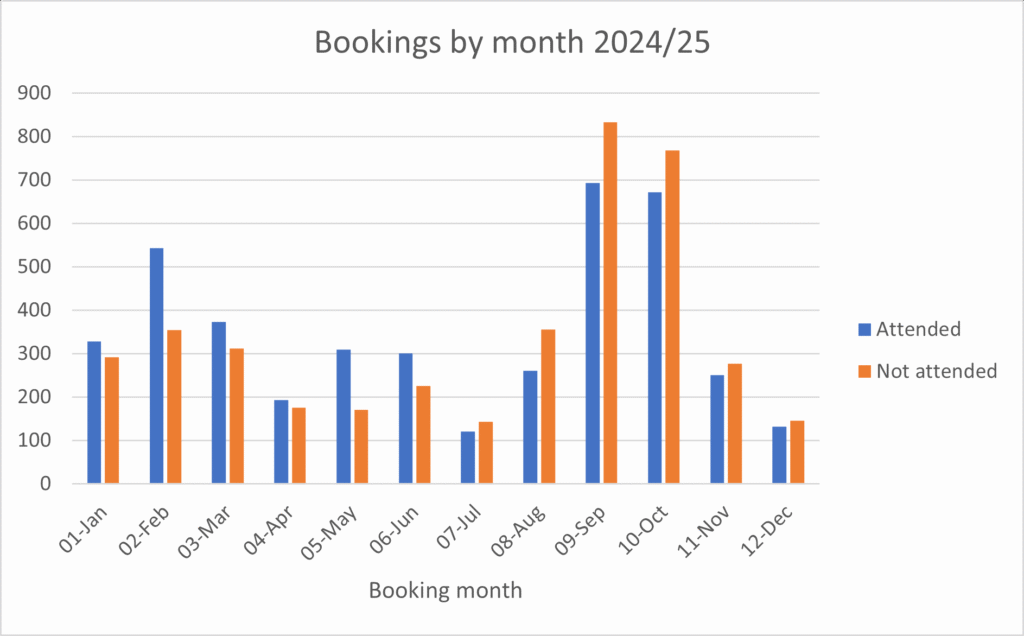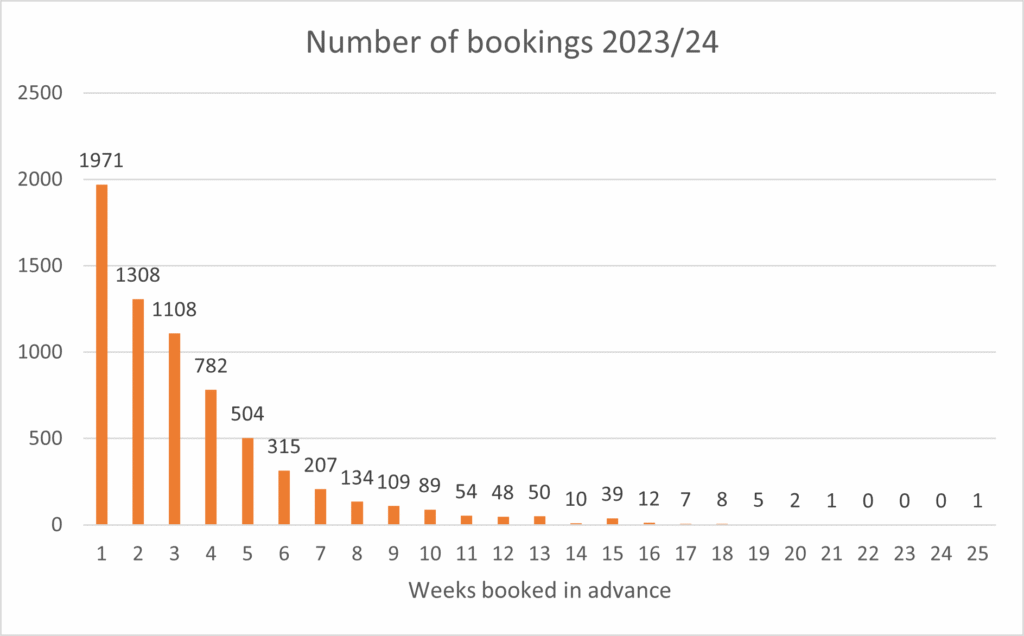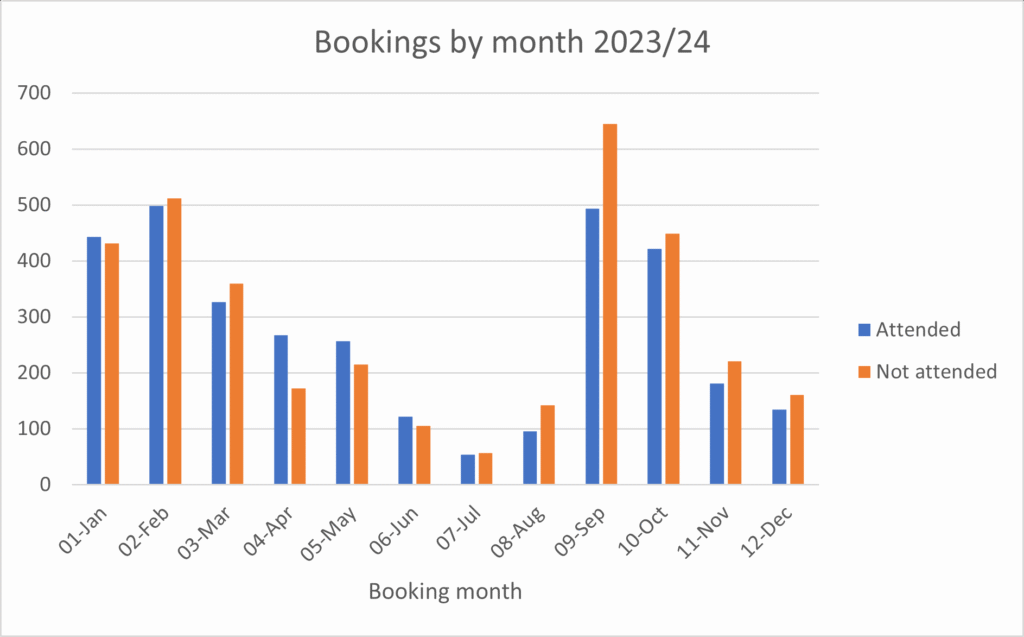Does booking date affect attendance rate?
Summary
• Most bookings are made up to 3 weeks before the course.
• Bookings made closer to the course start date have a higher attendance rate, but the effect is small.
• Attendance rate is higher for bookings made in the first half of the year.
• Trends were very similar for the previous year (2023/24), even though overall attendance rates were lower in 2023/24.
Data used
I looked at bookings made in Event Booking for Digital Skills courses that ran from 1/9/24 to 1/9/25, where the person either attended or did not attend the course. Cancellations and bookings where attendance was not recorded were not included.
I only included bookings that were made at least 1 day before the course. Some bookings were made on the day of the course, or after it ran. These were likely people who attended the course without booking and were added by an administrator, as open booking for most Digital Skills courses closes the day before the course starts.
I also excluded 191 bookings for 37 digital skills tutors, as these would likely have been made as part of the course administration process (so they get email reminders for the course they are presenting) as soon as the course was created, and so not represent real booking data.
There were 8,229 bookings, of which 4,176 (51%) attended the course.
How far in advance do people book courses?

The majority of bookings (62%) were made up to 3 weeks before the course. However, there is a long tail to this data – the furthest in advance that a booking was made was 227 days[1]. The average time that a booking was made before the course was 23 days.
Does how far in advance someone made their booking affect how likely they are to attend the course?

I excluded bookings made more than 13 weeks before the course, because the low number of bookings in these weeks made the percentage (%) attendance more variable.
There is a clear trend for people booking closer to the course date to be more likely to attend. Bookings made 1 to 5 weeks before the course had greater than 50% average attendance, while those made after 5 weeks consistently had less than 50% attendance.
On average, people who attended booked their place 21 days before the course, and people who did not attend booked 26 days before.
Does attendance rate vary over the year?

Bookings made in the first half of the year were more likely to be attended (57%) than bookings made in the second half of the year (46%). The month of May had the highest attendance rate (64%) and August had the lowest attendance rate (42%).
How does this relate to the previous year?
I compared the results to the previous academic year. From 01/09/23 to 01/09/24 there were 6,719 bookings, of which 3,288 (49%) attended the course.

65% of bookings were made up to 3 weeks (21 days) before the course, compared to 61% in 2024/25. The tail to this data was shorter than in 2024/25 – the furthest in advance a booking was made was 143 days before the course[2]. On average, a booking was made 21 days in advance of the course.

There was still a clear trend for people booking closer to the course date to be more likely to attend, but only bookings made 1 to 3 weeks before the course had greater than 50% average attendance (compared to bookings made 1 to 5 weeks in 2024/25).
On average, people who attended booked their place 19 days before the course, and people who did not attend booked 22 days before.

Bookings made in the first half of the year were still more likely to be attended (52%) than bookings made in the second half of the year (45%), but some of the Jan-Jun months had a less than 50% attendance rate (in 2024/25 all Jan-Jul months had a greater than 50% attendance rate). April had the highest attendance rate (61%) and August had the lowest attendance rate (41%).
Conclusion
How many weeks before the course a booking was made does affect the likelihood of attendance, with a shorter booking time being associated with a higher attendance rate. As the average number of days a person booked their place before the course was lower for 2023/24 than 2024/25 this effect would lead me to expect that the attendance rate for 2023/24 would be higher than for 2024/25, however this is not the case, suggesting that other factors may play a more important part in influencing whether a person attends. Factors that might have improved the attendance rate in 2024/25 could include more tutors sending a 10 minute reminder email, and the sending of emails to people who repeatedly no-showed reminding them to cancel if they can’t attend.
[1] Booking made on 17/08/24 for the “Library Bitesize: Embedding Content from Library Resources” course on 01/04/25 – they did not attend.
[2] Booking made on 15/01/24 for the “Using PRISMA for reporting your systematic review search methods” course on 06/06/24 – they did attend.



